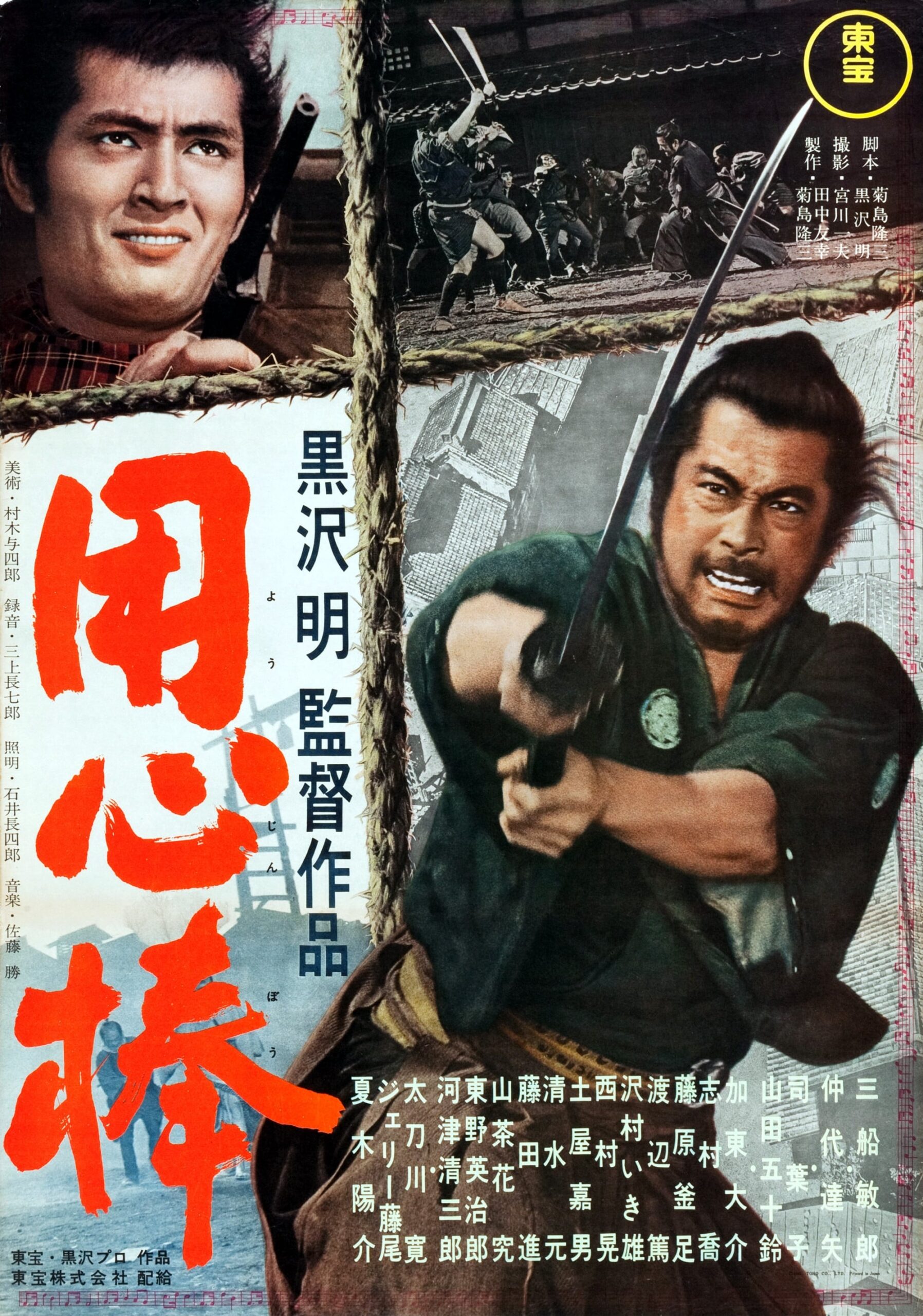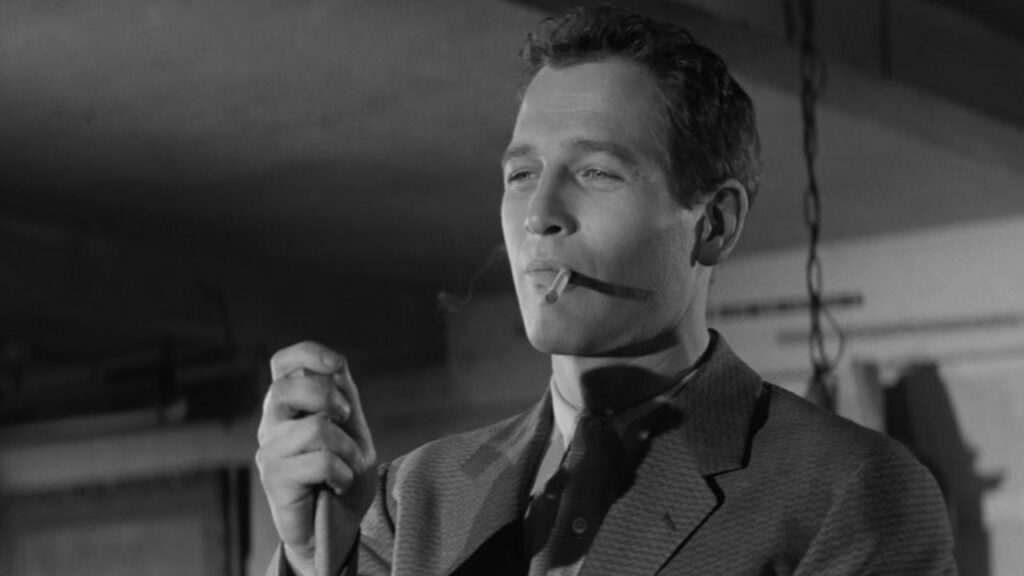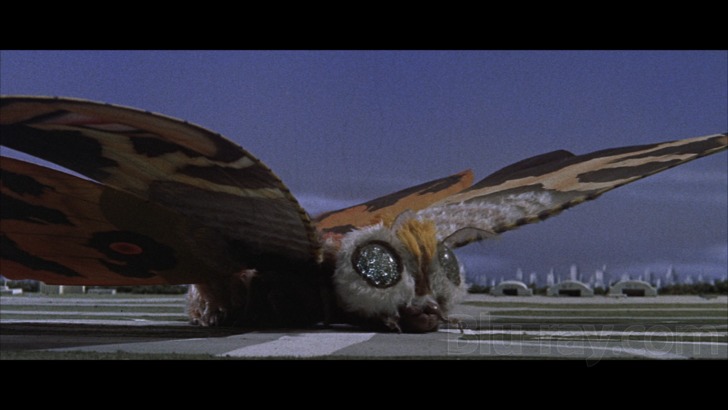“Yojimbo” (1961): A Seminal Work of Samurai Cinema – Film Review

Akira Kurosawa’s 1960 film “Yojimbo,” starring the iconic Toshiro Mifune, is a landmark in Japanese cinema and a significant influence on global filmmaking. Blending elements of samurai tradition with a modern narrative approach, “Yojimbo” is more than just a historical drama; it is a story of intrigue, strategy, and individual morality. This review explores the narrative brilliance, production nuances, and the enduring legacy of “Yojimbo.”
Narrative Mastery: Crafting a Tale of Cunning and Conflict
“Yojimbo” presents the story of a ronin, a masterless samurai named Sanjuro Kuwabatake (played by Toshiro Mifune), who arrives in a town torn apart by two rival gangs. Instead of picking a side, Sanjuro plays a complex game, pitting the gangs against each other to free the town from their grip. The film’s narrative is marked by its sharp wit, cunning strategies, and a critique of greed and corruption.
Kurosawa’s direction and storytelling in “Yojimbo” showcase his mastery in weaving complex narratives that are both engaging and thought-provoking. The film’s structure, with its emphasis on individual morality against a backdrop of wider social conflict, offers a fresh take on the samurai genre.
The Making of a Classic
The production of “Yojimbo” was a testament to Kurosawa’s vision and his collaborative approach to filmmaking. Working closely with cinematographer Kazuo Miyagawa, Kurosawa utilized dynamic camera movements and innovative framing to create visually striking scenes that enhanced the narrative tension and character dynamics.
One of the most notable aspects of the film’s production was the creation of the town where the story unfolds. The set was meticulously designed to reflect the era’s socio-economic conditions, adding authenticity and depth to the film. Kurosawa’s attention to detail in the set design, costumes, and props contributed significantly to the immersive experience of “Yojimbo.”
Toshiro Mifune’s Iconic Performance
Toshiro Mifune’s portrayal of Sanjuro is a highlight of “Yojimbo.” Mifune brings a unique blend of charisma, wit, and brooding intensity to the character, making Sanjuro a memorable and complex protagonist. His performance is not just about physical prowess in swordsmanship but also about portraying a samurai’s strategic mind and moral code.
Cinematography: Painting the Edo Period
The cinematography in “Yojimbo” is notable for its stark contrast and dramatic use of light and shadow, which adds a gritty texture to the film. The composition of shots, with the meticulous positioning of characters and objects, creates a dynamic visual narrative that complements the story’s tension and suspense.
Music and Sound: Amplifying the Atmosphere
The film’s score, composed by Masaru Sato, plays a crucial role in setting the tone of “Yojimbo.” The music, with its blend of traditional Japanese and contemporary Western influences, reflects the film’s thematic fusion and adds an additional layer of intrigue and intensity to the narrative.
Themes: Exploring Morality and Power
“Yojimbo” delves into themes of power dynamics, morality, and the impact of one individual’s actions on a corrupt system. The film explores the notion of the anti-hero and the gray areas of moral judgment, challenging the traditional portrayal of samurai as unerringly honorable and selfless.
Cultural Impact and Global Influence
“Yojimbo” had a profound impact on both Japanese and international cinema. It inspired numerous adaptations and homages, most notably Sergio Leone’s “A Fistful of Dollars,” which launched the Spaghetti Western genre. Kurosawa’s innovative storytelling and visual style influenced a generation of filmmakers and contributed to the global appreciation of Japanese cinema.
“Yojimbo” remains a seminal work in the world of cinema, showcasing Akira Kurosawa’s unparalleled skill as a filmmaker. The combination of a compelling narrative, dynamic cinematography, a groundbreaking performance by Toshiro Mifune, and a thought-provoking exploration of themes makes “Yojimbo” a timeless classic. Its influence on cinema extends far beyond its historical and cultural context, solidifying its status as a masterpiece of storytelling and visual artistry.




